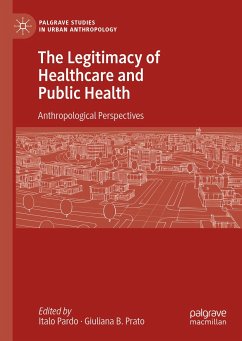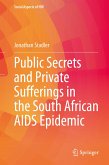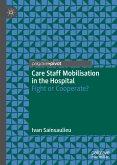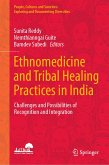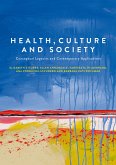The complex, highly problematic, often thorny dynamics of trust and authority are central to the anthropological study of legitimacy. In this book, this sine qua non runs across the in-depth examination of the ways in which healthcare and public health are managed by the authorities and experienced by the people on the ground in urban Europe, the USA, India, Africa, Latin America and the Far and Middle East. This book brings comparatively together anthropological studies on healthcare and public health rigorously based on in-depth empirical knowledge. Inspired by the current debate on legitimacy, legitimation and de-legitimation, the contributions do not refrain from taking into account the impact of the Covid-19 pandemic on the health systems under study, but carefully avoid letting this issue monopolise the discussion. This book raises key challenges to our understanding of healthcare practices and the governance of public health. With a keen eye on urban life, its inequalities and the ever-expanding gap between rulers and the ruled, the findings address important questions on the complex ways in which authorities gain, keep, or lose the public's trust.
Italo Pardo is Honorary Professor of Social Anthropology at the University of Kent, UK. He established and co-edits the journal Urbanities-Journal of Urban Ethnography and co-founded and presides over the not-for-profit association, International Urban Symposium-IUS.
Giuliana B. Prato is Honorary Professor of Social Anthropology at the University of Kent, UK. She chairs the Commission on Urban Anthropology (IUAES), co-founded the International Urban Symposium-IUS, of which she is Secretary-Treasurer, and co-founded and serves on the Board of Urbanities-Journal of Urban Ethnography.
Dieser Download kann aus rechtlichen Gründen nur mit Rechnungsadresse in A, B, BG, CY, CZ, D, DK, EW, E, FIN, F, GR, HR, H, IRL, I, LT, L, LR, M, NL, PL, P, R, S, SLO, SK ausgeliefert werden.
"The book brings out intersectionality lucidly through the collection of essays most evidently in its analyses of class, race, region, migrant status. All the chapters are inter-connected organically ... . The work remains an important contribution for the anthropological study of healthcare and legitimacy as well as for the detailed sections on research methodology which can be useful for students pursuing social sciences at an advanced level." (Ipsita Pradhan, Urbanities-Journal of Urban Ethnography, Vol. 14 (1), May, 2024)
Es gelten unsere Allgemeinen Geschäftsbedingungen: www.buecher.de/agb
Impressum
www.buecher.de ist ein Internetauftritt der buecher.de internetstores GmbH
Geschäftsführung: Monica Sawhney | Roland Kölbl | Günter Hilger
Sitz der Gesellschaft: Batheyer Straße 115 - 117, 58099 Hagen
Postanschrift: Bürgermeister-Wegele-Str. 12, 86167 Augsburg
Amtsgericht Hagen HRB 13257
Steuernummer: 321/5800/1497
USt-IdNr: DE450055826
Bitte wählen Sie Ihr Anliegen aus.
Rechnungen
Retourenschein anfordern
Bestellstatus
Storno

